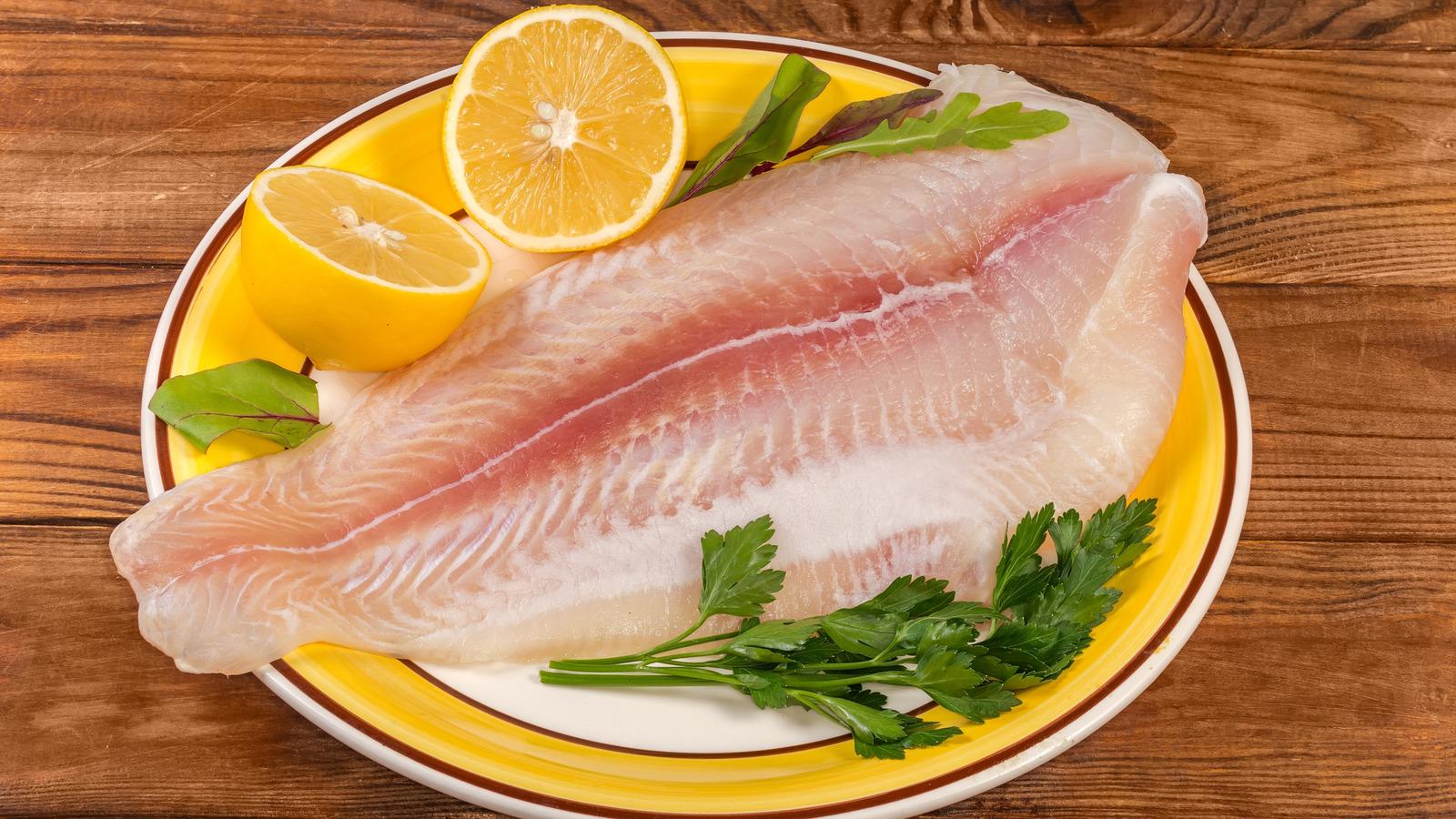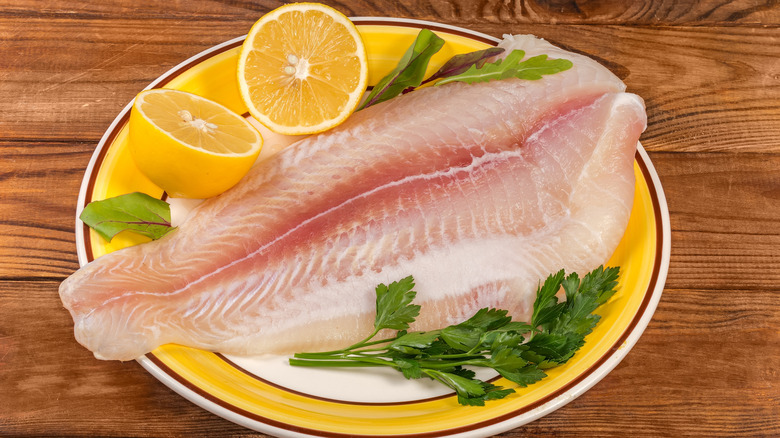
anmbph/Shutterstock
Many food products, particularly fish, are frozen to preserve freshness and slow spoilage as they are transported from fish farms to markets, all the way to consumers' kitchens. The USDA's Food Safety and Inspection Service (FSIS) and the U.S. Food and Drug Administration (FDA) are the two regulating bodies tasked with monitoring food quality and safety, as well as compliance among the producers, importers, and distributors of frozen fish products in the country. Whenever they find frozen fish products that don't meet food safety standards, or if importers and distributors don't comply with importation and inspection procedures, they issue recalls.
Recalls are necessary because they prevent potential outbreaks and protect the public from harm. Although many compliant importers and manufacturers perform quality checks, sometimes problems like contamination and product mislabeling go unnoticed until a customer submits a formal complaint.
The FDA is responsible for conducting safety inspections for all seafood. They had jurisdiction over all frozen fish products until May 2016, when inspection of all farm-raised and wild-caught Siluriformes became the responsibility of the FSIS. Siluriformes, also known as catfish, are a diverse group of bony, ray-finned fish that are mostly freshwater. Here are some of the biggest frozen fish recalls, including catfish, so far in U.S. history.
Khee Trading, Inc. recalled 1,764 cartons of frozen half-shell oysters in 10 states (2025)
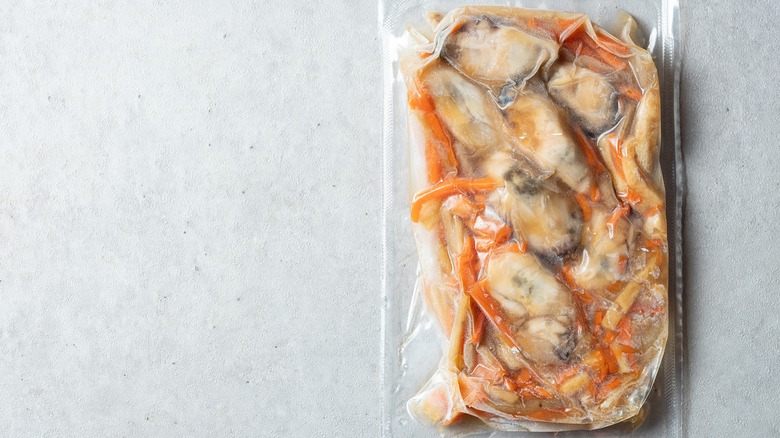
mnimage/Shutterstock
The most recent major recall of frozen seafood happened in May 2025. The FDA published a recall of frozen oysters harvested from the Republic of Korea suspected of being contaminated with norovirus. Khee Trading, Inc. from California initiated a recall, sending notices to consumers, restaurants, and distributors in at least 10 states where its frozen half-shell oysters were shipped.
This is the latest in a string of recalls for oysters harvested and processed in Korea in 2024 to 2025. Earlier in the same month, the Pacific American Fish Company (PAFCO) ordered the recall of an undisclosed quantity of frozen half-shell oysters. In March, Sea Win, Inc. from Los Angeles voluntarily recalled 650 cases. A follow-up advisory from the Interstate Shellfish Sanitation Conference (ISSC) would later reveal that Sea Win's supplier in Korea, which was also conducting a recall, sent 1,500 cases of the reportedly contaminated oysters.
These recalls for contaminated oysters come on the heels of a norovirus outbreak in the country. The CDC documented 206 suspected and confirmed norovirus cases in the week of January 23, 2025 alone.
Norovirus is highly contagious with symptoms emerging within 12 to 48 hours of exposure to the bacteria. Children, elderly, and immunocompromised individuals are the most vulnerable and may experience fevers, fatigue, and headaches. Other symptoms include vomiting, diarrhea, dizziness, and dehydration.
Otten's Seafood Inc. recalled 46,804 pounds of whole catfish and catfish steaks (2021)
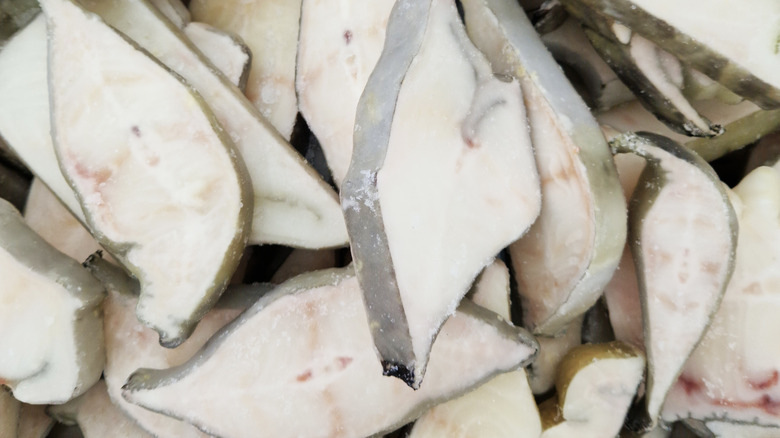
Mariia Klymenko/Getty Images
When certain steps in frozen food production are bypassed, the goods in question may be recalled because they haven't been cleared by inspectors from authorized regulating bodies. This was the reason for the recall of 46,804 pounds of frozen catfish steaks and whole fresh catfish by Otten's Seafood Inc. which were distributed to customers and retailers in Illinois and Indiana.
Routine surveillance by the FSIS revealed that the recalled products did not bear the USDA mark of inspection label. Furthermore, the FSIS hadn't inspected the manufacturing plant that produced and packed the frozen catfish products.
The recalled catfish steaks had a shelf life of one year, while the whole catfish had a shelf life of one week if out of the freezer. As the catfish was produced in January and the recall happened only in May, there were concerns that some of the products may have already reached households. The FSIS published the announcement to make consumers who bought the problematic products aware of the situation. Fortunately, there were no reports of illnesses or hospitalizations related to the recall.
Fulton Seafood Inc. recalled 100,924 pounds of wild-caught catfish (2019)
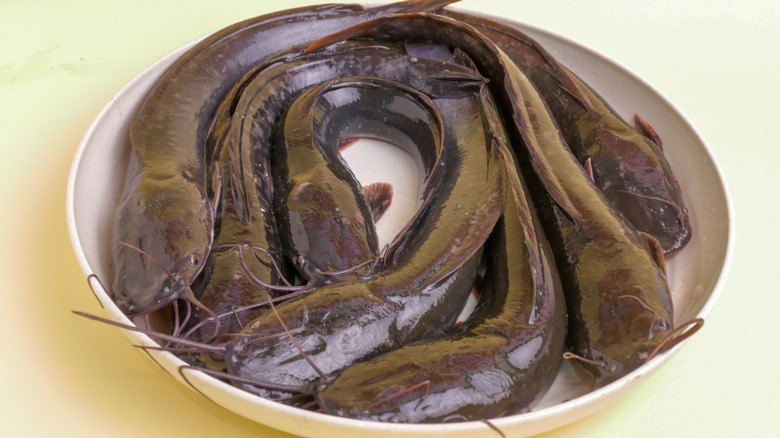
ritadewilestari/Shutterstock
The fourth-biggest recall of frozen fish products in the U.S. in terms of volume, as of this writing, was for wild-caught catfish in Houston, Texas. Harvested and processed from January 2018 to February 2019 by Fulton Seafood Inc., the recalled Siluriformes products did not undergo proper inspection and safety clearance by the FSIS. The regulating body flagged the products for a Class 1 recall, the most dangerous of the three risk classes currently used for food recalls by the FSIS.
Inspectors who were surveilling a cold storage facility discovered the problematic catfish products and immediately noted that they did not carry marks of inspection. The catfish were placed in cardboard boxes and were delivered to retailers, who then transferred the products inside display cases and sold them directly to consumers.
Since the catfish were distributed and sold despite not having passed quality and food safety inspections by the FSIS, there were concerns that the catfish might cause health problems for consumers. Fortunately, there were no reports of illnesses or adverse reactions related to the recall.
Of the 100,924 pounds ordered to be recalled, 20,647 were recovered according to the latest alert from the FSIS. The catfish were reportedly distributed only within Texas.
Premium Foods USA, Inc. recalled 121,151 pounds of freshwater catfish (2019)
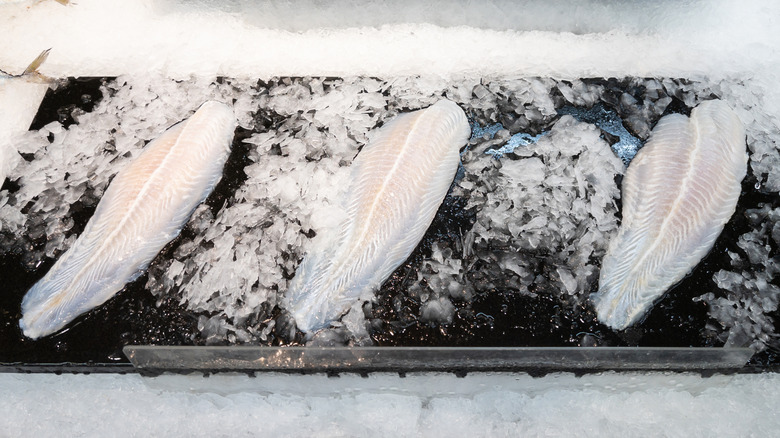
Trainman111/Getty Images
Siluriformes products imported from countries the U.S. considers ineligible sources are recalled immediately. So, when the FSIS discovered that Premium Foods USA, Inc. from New York imported a variety of freshwater catfish from Bangladesh and Myanmar — two ineligible countries for importing Siluriformes products, by U.S. standards — they immediately ordered the recall of 76,025 pounds of imported catfish.
This was the third-largest frozen fish recall by volume in the U.S. The order covered a variety of frozen freshwater catfish: bagrid, yellowtail, Ompok pabda (which is native to the two exporting countries), stringing catfish, and walking catfish (native to Southeast Asia).
In addition to committing an import violation, the frozen catfish were not presented to authorities for reinspection. The FSIS discovered these violations during their routine surveillance at ports of entry for imported products. This suggests that the imported catfish may not have been prepared, stored, and moved according to the guidelines of the FSIS.
There were no reports of hospitalizations or ill health effects from people who may have bought and consumed frozen catfish products that had been part of the recall. Interestingly, there had been no further updates on the volume recovered even though the recall order wasn't closed until 2020, by which time the product list had been expanded and raised the total recall volume to 121,151 pounds.
McAllen Cold Storage, Ltd. recalled 51,942 pounds of basa fillets (2019)
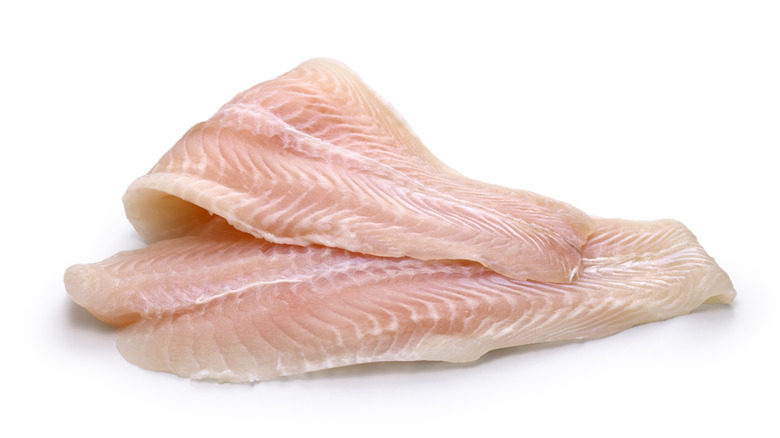
Bonchan/Getty Images
McAllen Cold Storage, Ltd. from Texas similarly had to issue a recall for the 51,942 pounds of pangasius frozen basa fillets they imported from Vietnam because the goods were not presented for reinspection upon their arrival to the country. The frozen fish arrived in the U.S. from August 2018 to February 2019, and many had already reached wholesalers and retailers in Texas by the time of the recall.
The FSIS confirmed the violation after an official asked the company whether it received imported frozen basa fillets that did not meet federal import requirements. The products didn't have clearance from the FSIS, so there was no guarantee that they met the USDA's standards for quality and food safety.
There were concerns that people who may have eaten the uninspected catfish might experience adverse health effects. Thankfully, there were no reported incidents of hospitalizations or ill effects due to the recalled products. The FSIS nevertheless recommended that consumers who bought some of the recalled products must not cook or eat the catfish, and should throw them out or return them instead.
A total of 11,374 pounds of the boneless and skinless fillets had been recovered, according to the FSIS website. In the recall notice, the FSIS reaffirmed its commitment to checking in with companies with active recalls and verifying that they are performing their due responsibility in informing consumers and taking products off the shelves.
Richwell Group, Inc. recalled 160,020 pounds of yellow walking fish (2019)
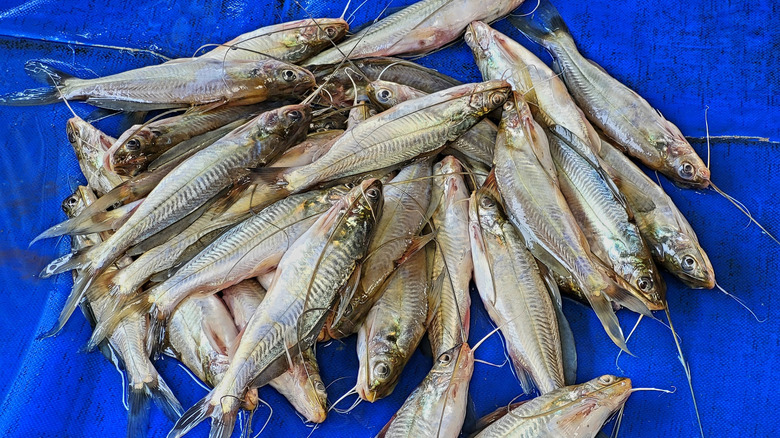
Md.Ashaduzzaman Noor/Shutterstock
The biggest frozen fish recall in U.S. history in terms of volume happened in 2019. Richwell Group, Inc. of California, recalled 154,500 pounds of frozen yellow walking fish and mystus fish sourced from Vietnam after violating import rules. Additionally, the imported catfish were not presented to USDA personnel for reinspection.
The import violation was cited after it was revealed that the establishment that produced the frozen catfish was ineligible to export such food products to the U.S. The products arrived from March 2018 to January 2019 and were distributed to retailers and customers nationwide.
The violations were revealed thanks to the FSIS' routine surveillance of imported products at various ports of entry. The recall order was later expanded, which added over 5,000 pounds of catfish to the total recall volume. The list includes packs of two to three pieces of farm-raised, quick-frozen, headless yellow walking fish, as well as individually packed, frozen headless mystus cavasius (long-whiskered catfish). The expanded recall increased the total to 160,020 pounds, the highest in this list.
The FSIS website shows that only 1,371 pounds had been recovered during the recall. Fortunately, there were no confirmed reports of health concerns or hospitalizations due to consumption of the recalled frozen fish products.
H&T Seafood, Inc. recalled 71,435 pounds of sheatfish (2019)
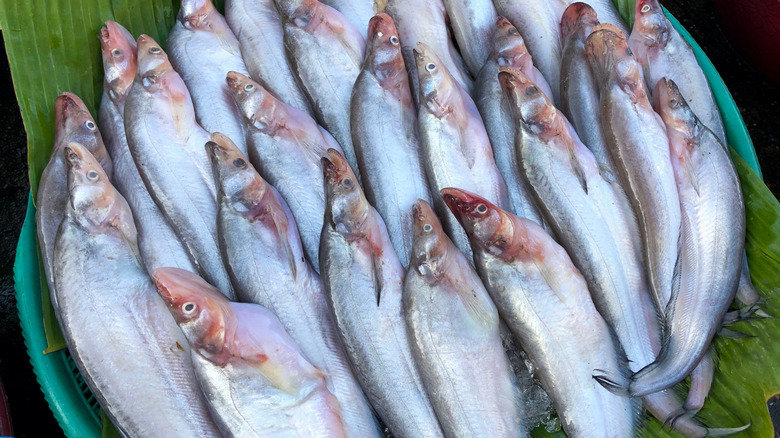
ninekrai/Shutterstock
In yet another case of a recall due to lack of inspection clearance, a Californian importer, H&T Seafood, Inc., recalled a total of 71,435 pounds of wild-caught, frozen sheatfish from Vietnam that had been shipped to the U.S. from November 2017 to October 2018. The recall order came after inspectors found that the frozen Siluriformes didn't undergo proper reinspection upon their arrival at U.S. ports of entry.
The FSIS inspectors uncovered the violation during their routine surveillance at the distribution facility where the products were delivered. Batches of the frozen fish had already been delivered to retailers in California, Nevada, and Texas, however, before the recall was announced.
Since the frozen fish imported by H&T Seafood, Inc. had started entering the country as early as 2017, and the frozen fish had a shelf life of only two years, the earlier shipments were likely already sold to retailers and consumed by the public. Fortunately, no reports of illnesses or adverse reactions emerged due to eating sheatfish linked to this recall. The FSIS website did not report an update on how many out of the 71,435 pounds were successfully recovered after the recall was closed.
J Deluca Fish Company Inc. recalled 69,590 pounds of yellow walking fish (2019)
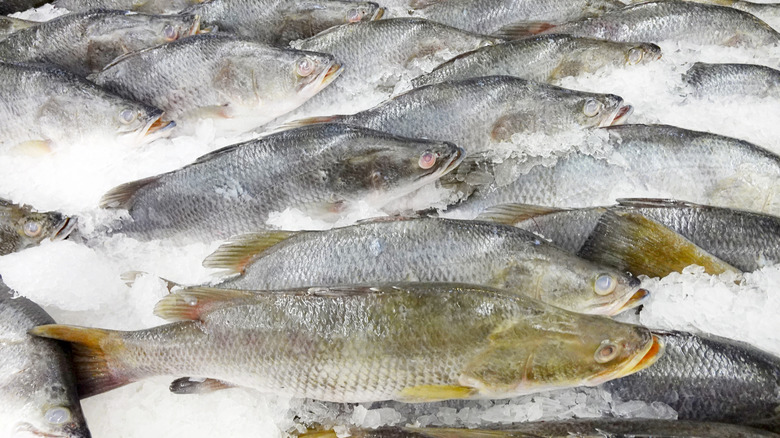
Rusn/Getty Images
A recall similar to H&T Seafood, Inc.'s situation happened again a few months later in May 2019. J Deluca Fish Company Inc., also from California, recalled 69,590 pounds of frozen yellow walking fish because the imported products were not presented for reinspection upon their arrival to the country.
The FSIS discovered the violation after its routine surveillance SOPs that month. Moreover, J Deluca Fish Company Inc. (which also operates under the name Nautilus Seafood) committed an import violation by buying frozen fish from a Vietnamese producer that isn't eligible to export such products to the U.S.
The recall list consisted of two-piece packs of farm-raised, headless yellow walking fish and whole yellow walking fish packaged in various weights and sizes. They had been imported and arrived in the U.S. from August 2018 to January 2019. By the time the recall order was published, the frozen goods had already been shipped to retailers and distributors around the country.
Out of the nearly 70,000 pounds ordered off the shelves, only 1,520 pounds were recovered. Likely, consumers had already gotten to the fish before the recall was made public. Fortunately, there were no reported customer complaints about adverse reactions due to eating the problematic products.
Richwell Group, Inc. recalled 73,360 pounds of sheatfish (2019)
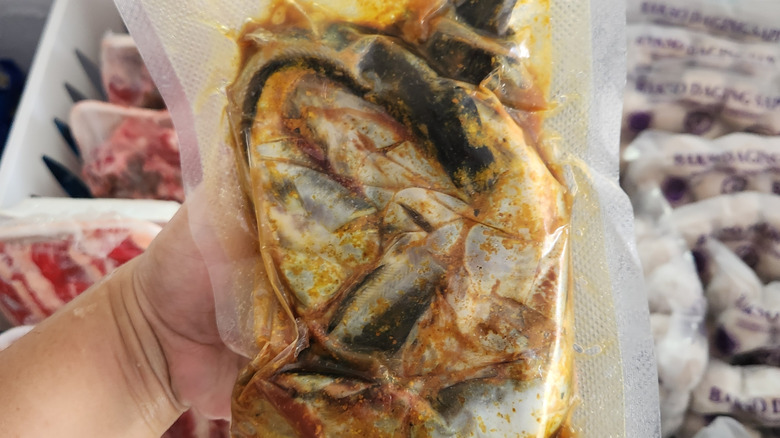
Esa Septiana/Shutterstock
Richwell Group, Inc. announced the biggest recall for frozen Siluriformes so far (in terms of volume) back in May 2019. The company had actually just finished a recall that started in February of that same year. Richwell Group, Inc. recalled 73,360 pounds of sheatfish imported from Vietnam due to a lack of inspection clearance.
The FSIS found these products didn't undergo physical reinspection after personnel reviewed surveillance reports of the distributor facility where the frozen fish were stored. The recalled products were varieties of individually quick-frozen, wild-caught sheatfish in different flavors and sizes. Some of the packages did not show expiration dates, which lent further credibility to the recall order.
The frozen sheatfish entered the U.S. from December 2017 to December 2018 and were distributed all over the country. Unsurprisingly, the FSIS reported that only 10,108 pounds were successfully recovered. There was a good chance that the recalled products were already in restaurants and consumers' homes considering more than a year had passed since the first batch arrived. Fortunately, the frozen fish didn't cause adverse reactions reported by customers, according to official records.
TV Food LLC. recalled 27,956 pounds of yellow hito (2019)
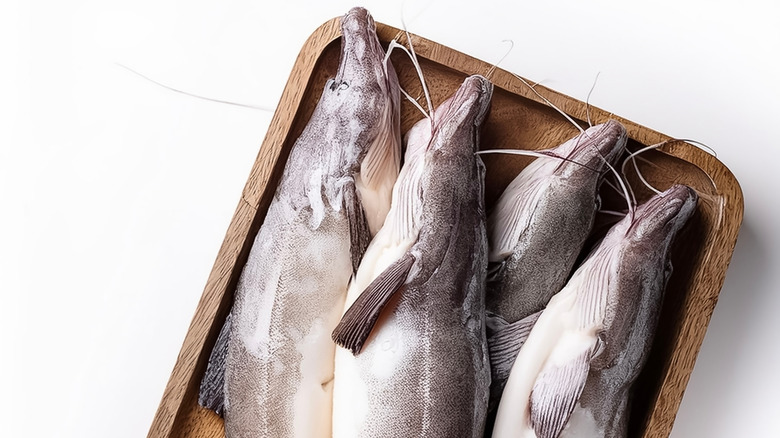
SaddhaPic/Shutterstock
TV Food LLC. rounds out the long list of massive recalls in 2019. The importer from California recalled 27,956 pounds of frozen yellow hito imported from Vietnam. Like all the 2019 recalls on this list, the recall happened because the products were not presented to authorized personnel for reinspection at the port of entry.
Unlike the other recalls that were because of the FSIS's routine surveillance, TV Food LLC.'s imported goods were discovered when the agency conducted a recall effectiveness and product disposition check of imported frozen Siluriformes imported by another company. It just so happened that the same Chicago distributor facility also housed TV Food LLC.'s imports.
The recalled products were a variety of frozen catfish packaged in two and three-packs, and by various weights. They had been shipped to distributors across the country by the time the FSIS and the company announced the recall.
The FSIS announcement didn't include when the imported fish entered the country, but the website reported that a total of 3,000 pounds had been recovered. Additionally, there were no reports of hospitalizations or adverse reactions from consumers related to the recalled fish products.
Heartland Catfish Company recalled 69,016 pounds of catfish fillets, nuggets, and whole fish (2018)
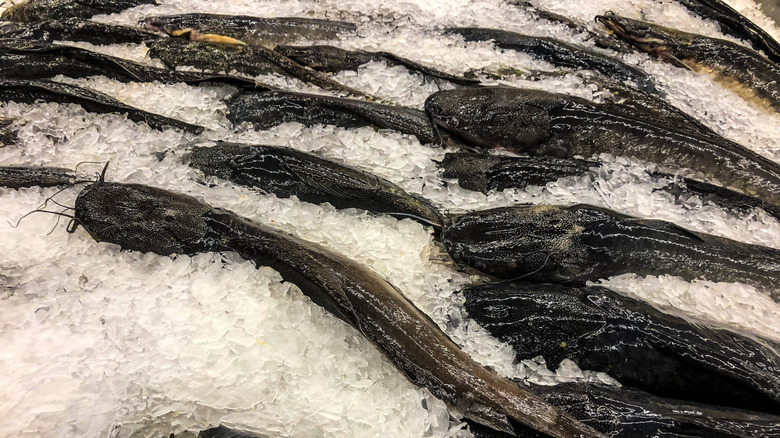
N_u_t/Getty Images
Urgent recalls are necessary when food products become contaminated at any stage of the processing or packaging. The FSIS will publish the recall order immediately to make the public aware and take appropriate action, especially for Class I and Class II recalls.
One example is the 2018 recall from the Heartland Catfish Company from Mississippi. The company is a producer of U.S. farm-raised catfish products and manages its supply of Siluriformes "from egg to harvest." In March 2018, the FSIS did a routine sampling inspection and found that a variety of frozen catfish products contained leucomalachite green (LMG) in amounts exceeding the allowable limit.
LMG is a chemical compound often used as a food coloring agent. It is more commonly used in aquaculture as a fungicide or topical antiseptic for fish diseased with parasites, protozoans, and fungi. It is safe when consumed in trace amounts, but research shows that excessive concentrations are linked to cellular mutations and acquired carcinomas. Fortunately, no customer had come forward with complaints of health issues related to the recalled products.
Heartland Catfish Company recalled 69,016 pounds of frozen whole catfish, catfish fillets, catfish nuggets, and skinless catfish products that had been shipped off to retailers in seven states. They were able to recover 56,104 pounds, the most impressive volume among all the recall orders in this list.
Vinh Hoan USA, Inc. recalled 84,000 pounds of swai fillets (2017)
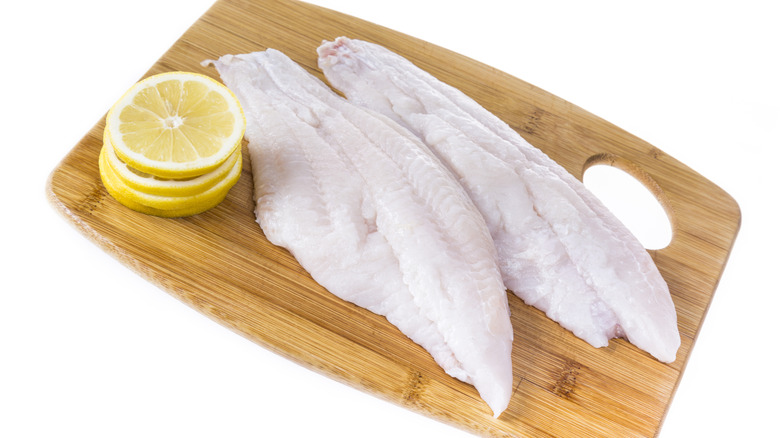
Desertsolitaire/Getty Images
Here is another recall that wasn't due to inspection lapses by the distributing facility or importer. Vinh Hoan USA, Inc. in California had to issue a recall of imported frozen swai fillets from Vietnam because the supplier did not comply with federal requirements for imported Siluriformes.
The company notified the FSIS that their shipment did not undergo residue sampling and testing before entering the U.S. markets. This was a serious violation that could have resulted in major public health concerns had the uninspected products been contaminated with deadly substances or did not meet food safety standards. As such, Vinh Hoan USA, Inc. ordered the recall of 84,000 pounds of frozen swai fillets that they imported from December 2016 to January 2017. The recall list consisted of 15-pound cases of frozen fillets with best-before dates from December 2018 to January 2019.
The products had been distributed to wholesalers in six other states by the time of the recall. Only 855 pounds were recovered, according to the FSIS. Despite the high probability that many of the recalled catfish had reached food establishments and households, no reports of illnesses or health issues were reported.
U.S. Cado Holdings, Inc. recalled 29,645 pounds of swai fillets (2016)
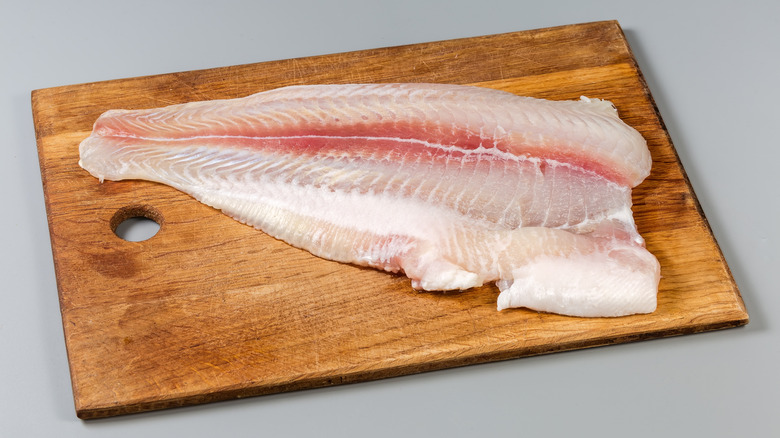
anmbph/Shutterstock
A series of recalls involving swai fillets were also issued in the second half of 2016. California's U.S. Cado Holdings, Inc. recalled a total of 29,645 pounds of farm-raised, quick-frozen swai fillets from Vietnam because of import violations. The initial recall for over 25,000 pounds was issued after the import establishment found that the frozen swai fillets did not undergo residue sampling and testing, which is a requirement for imported fish. However, the goods were already shipped to distributors in five states when the recall was issued.
FSIS expanded the recall order five days later to include over 2,000 pounds of the same products with different best-by dates. A second expansion was issued the following month, adding 1,650 pounds of products to the total recall volume. The FSIS did not list the quantity recovered from these recalls, so some products may have been consumed by the public. Thankfully, there were no reports of people falling ill from consuming the recalled fish.
Catfish dishes are a staple on American tables. More than 80% of the population eat seafood, and 74% of them eat fish. These numbers prove the importance of having strict regulations in the production and distribution of frozen seafood, especially among imported products. Our import inspection authorities do their best to avoid oversight, but when it happens, recall orders like these help protect the public from potential health threats.



